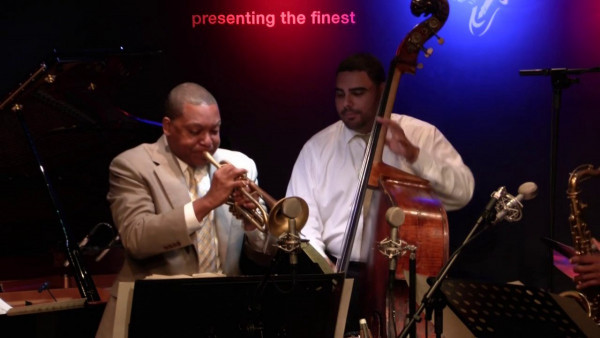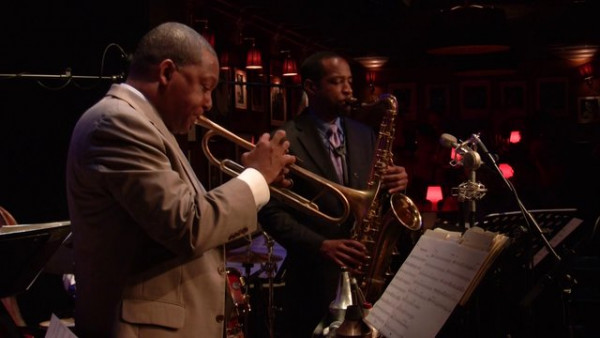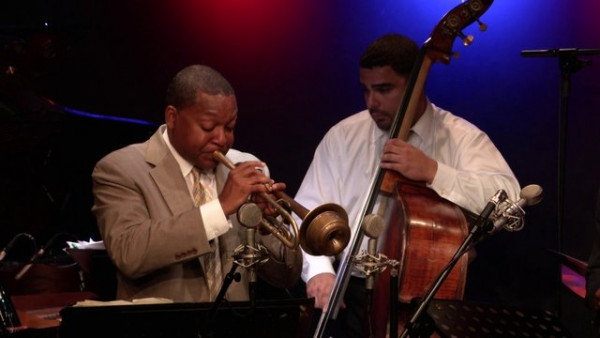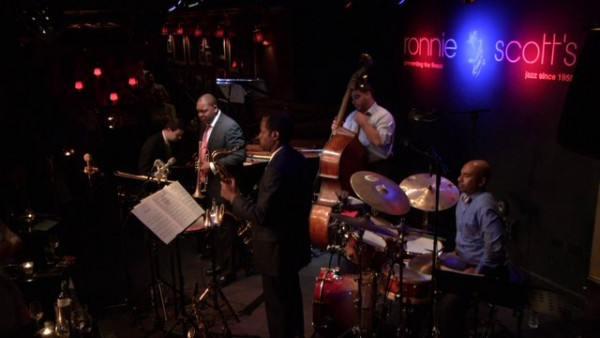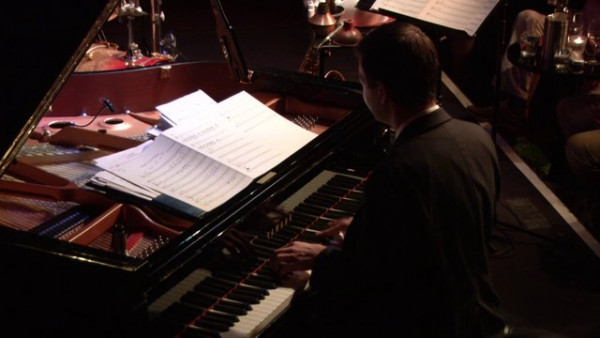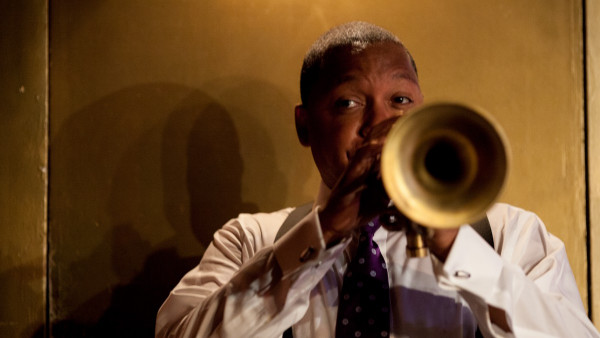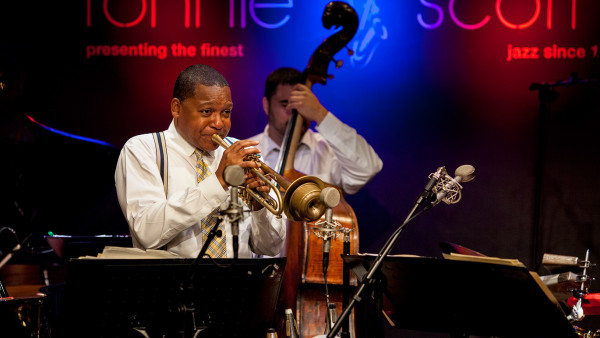Wynton Marsalis Quintet, Ronnie Scott’s, London – review
Wynton Marsalis doesn’t have much truck with amplification, and played the entire first house of his short Ronnie Scott’s residency off-mic at the level of an animated conversation. Occasionally voices were raised, sometimes they fell to a whisper and once there was a brief shouting match. But quiet should not be confused with low-key. The trumpeter and his band stretched out with the liquidity and focus of an intensely creative after-hours jam.
Marsalis kicked off this involving performance with a short flutter of a theme. Drums cued a walk and Marsalis launched into a stream of pithily phrased invention over a pulse that grew in tension. But this was no let-it-all-loose modal thrash. The long chorus had a twist in the tail, marked by dead stops or a change in speed or key. And then, when all were in their stride, the tempo suddenly changed to a lazy Latin pulse and a snippet of “What Is This Thing Called Love?” eased in a smoky entrance for Walter Blanding’s rapid-scale modernism and old-school warmth on tenor sax. Strange timings and sparky duets followed until the original theme reappeared to call things to a halt.
Marsalis’s band were so well integrated that it was hard to separate pre-arranged showpiece from spontaneous group whim. They stamp their group logic on a whole swathe of jazz history. This gig juxtaposed classic Jelly Roll Morton with free-form Ornette Coleman and bookended the Thelonious Monk rarity “Green Chimneys” with a Marsalis waltz and a final fast and furious blues. Each piece seemed to change at will. Coleman’s “Ramblin’” ended up as “Una Muy Bonita” in a different key and Morton’s music was a showcase for Marsalis’s chatterbox plunger mute over stop-time rhythms. Even the ballad strayed from the script.
Each piece was full of detail and there was much to absorb. Pianist Dan Nimmer, exceptional throughout, added myriad soulful voicings, rhythmic delays and answering phrases, Carlos Henriquez on bass and Ali Jackson on drums marked each contour and line, and Marsalis relished the riches he helped to create. They returned for a playful “All the Things You Are” and, with every nuance clear to admire, the champion of acoustic jazz resoundingly made his point.
by Mike Hobart
Source: Financial Times


